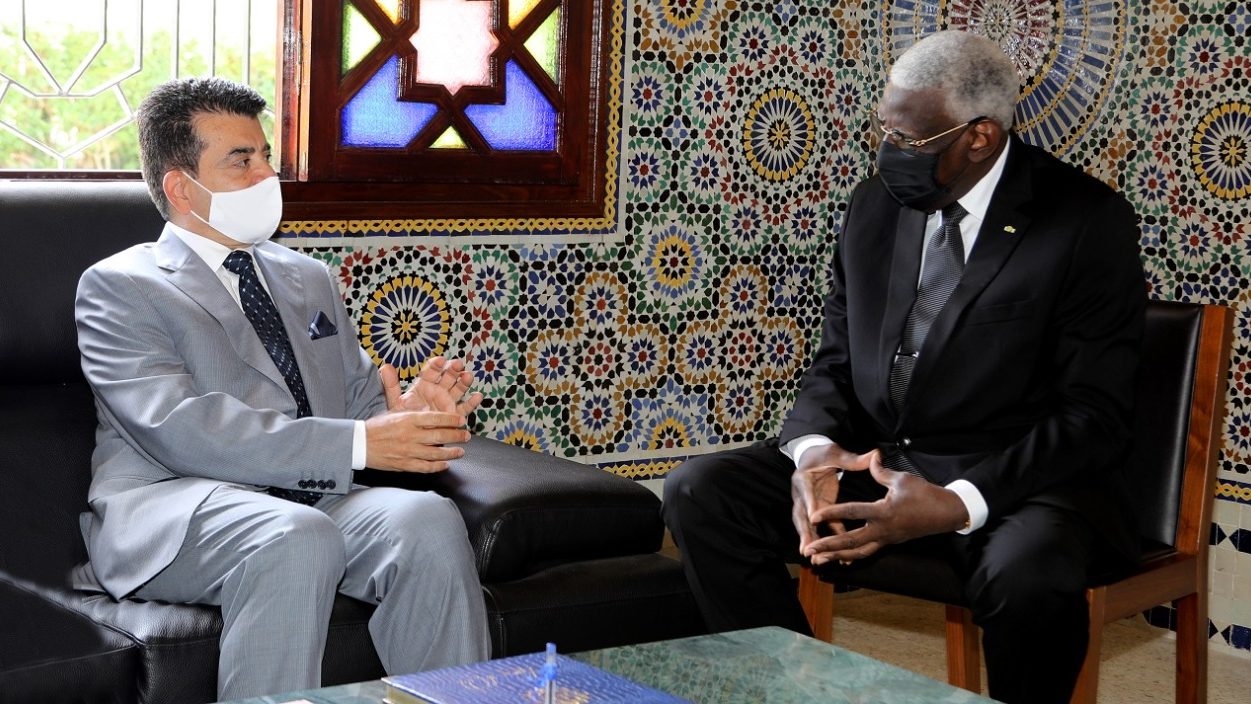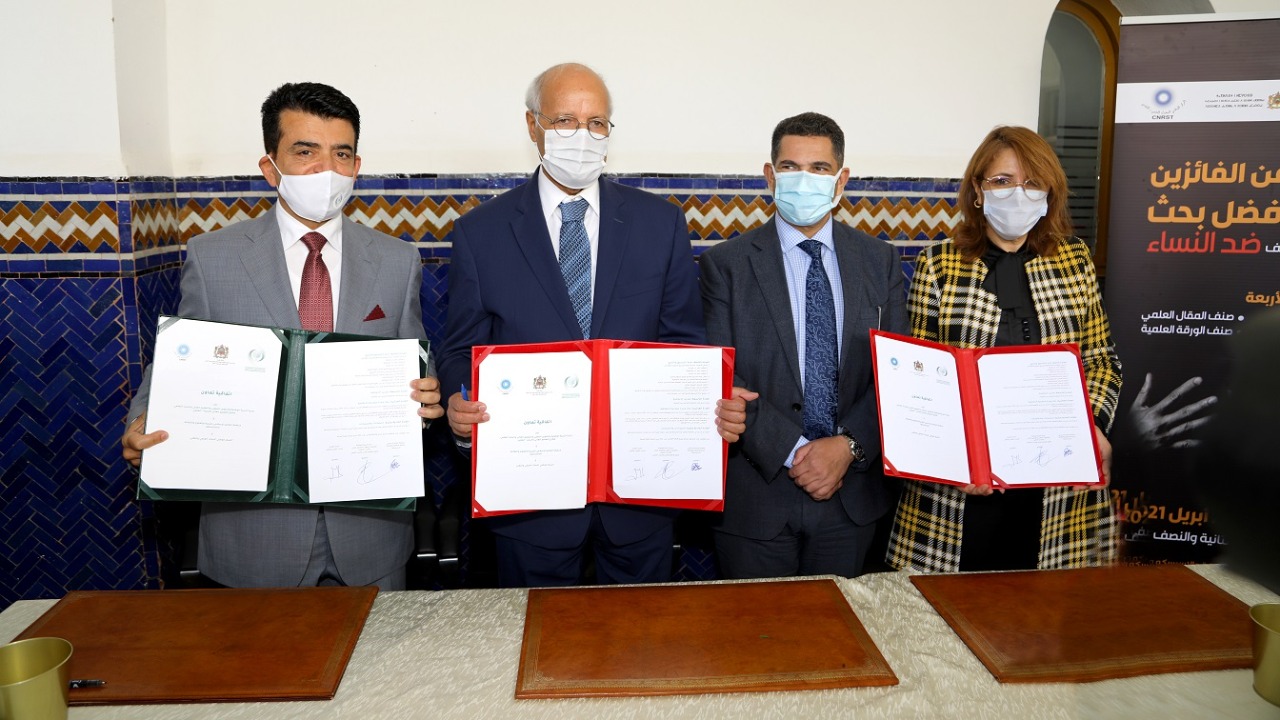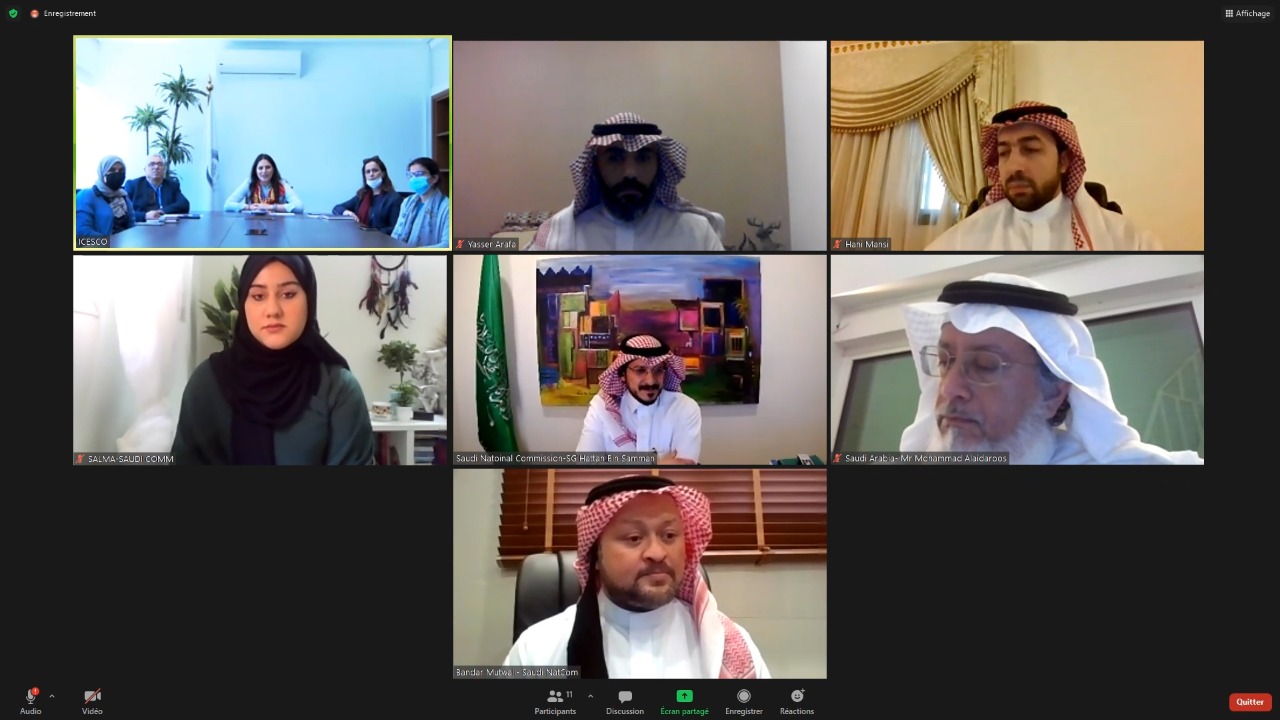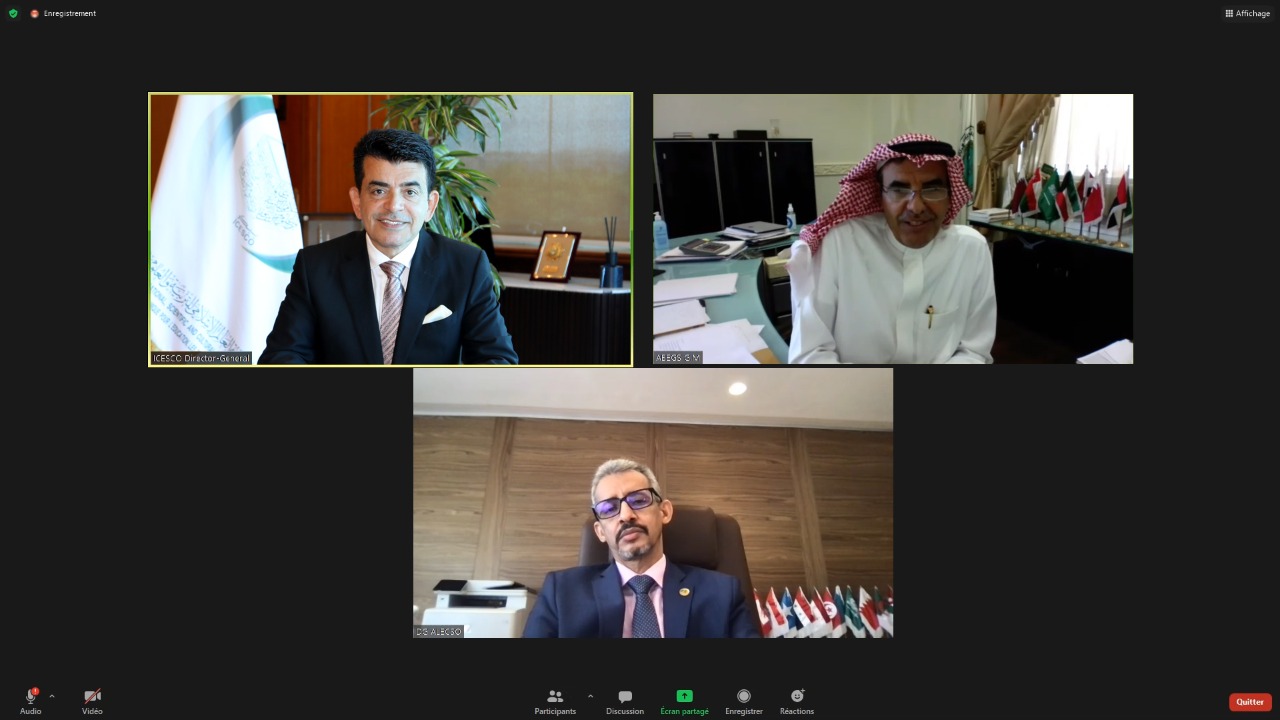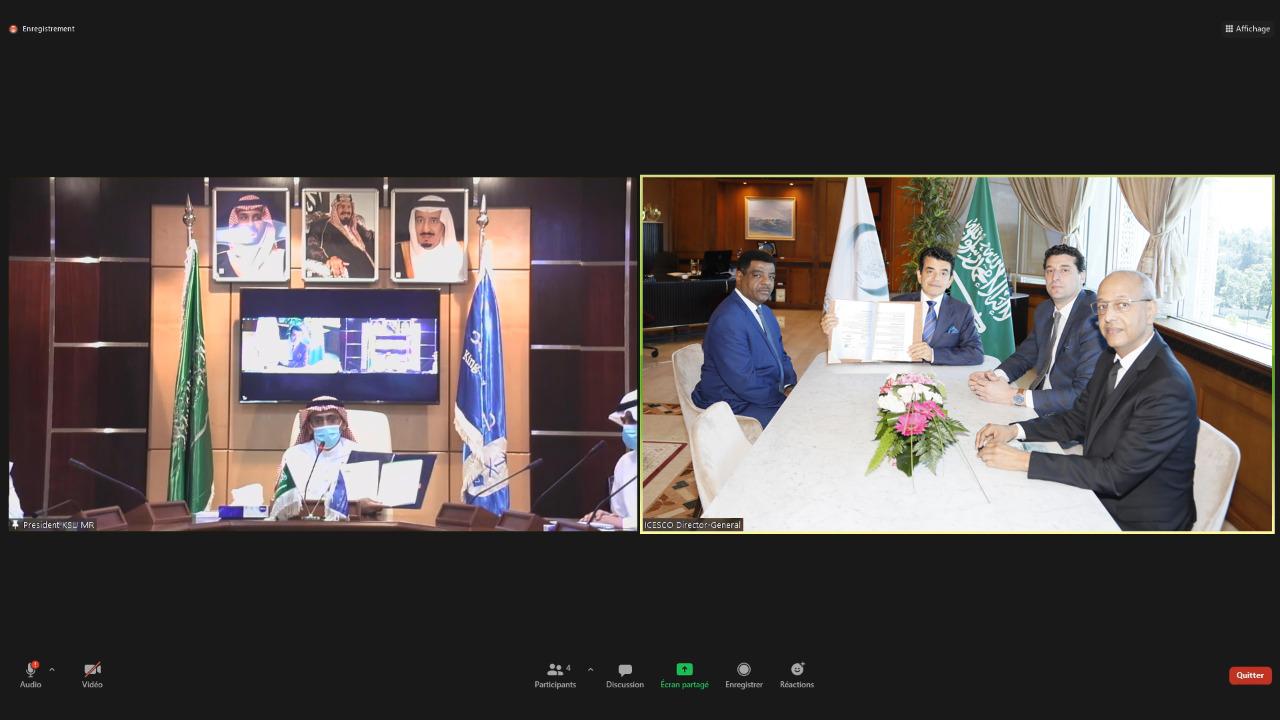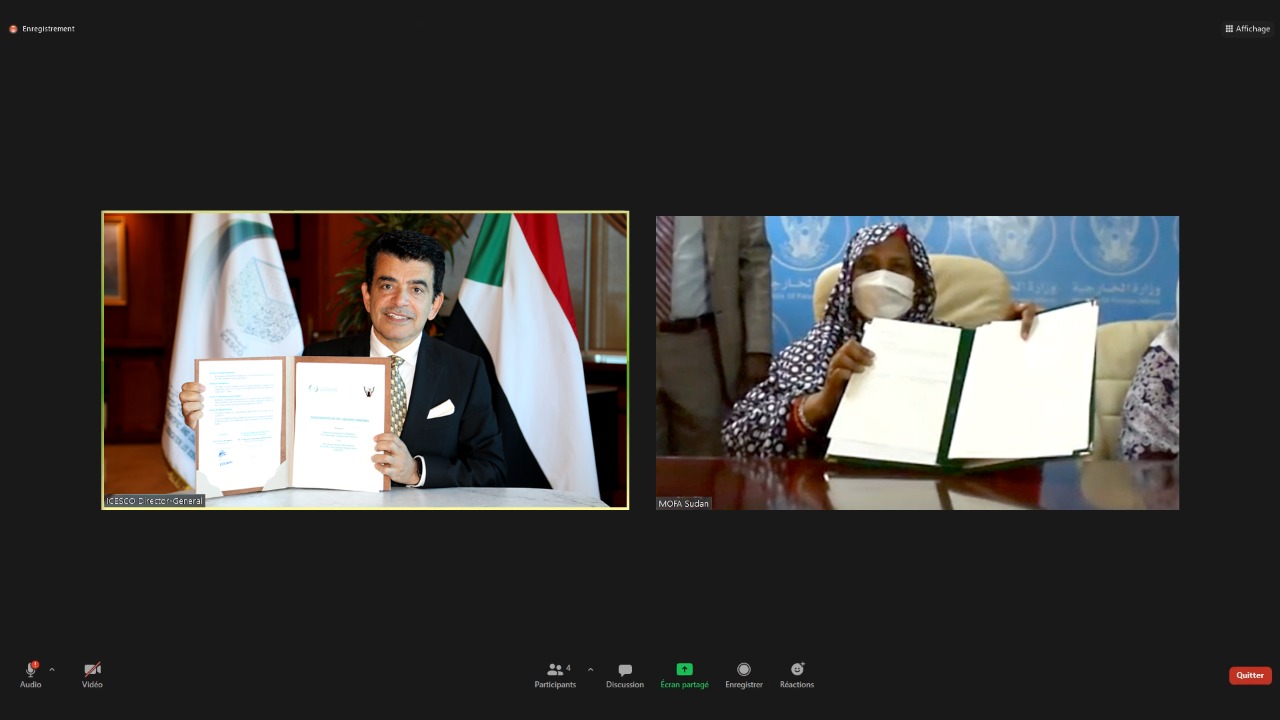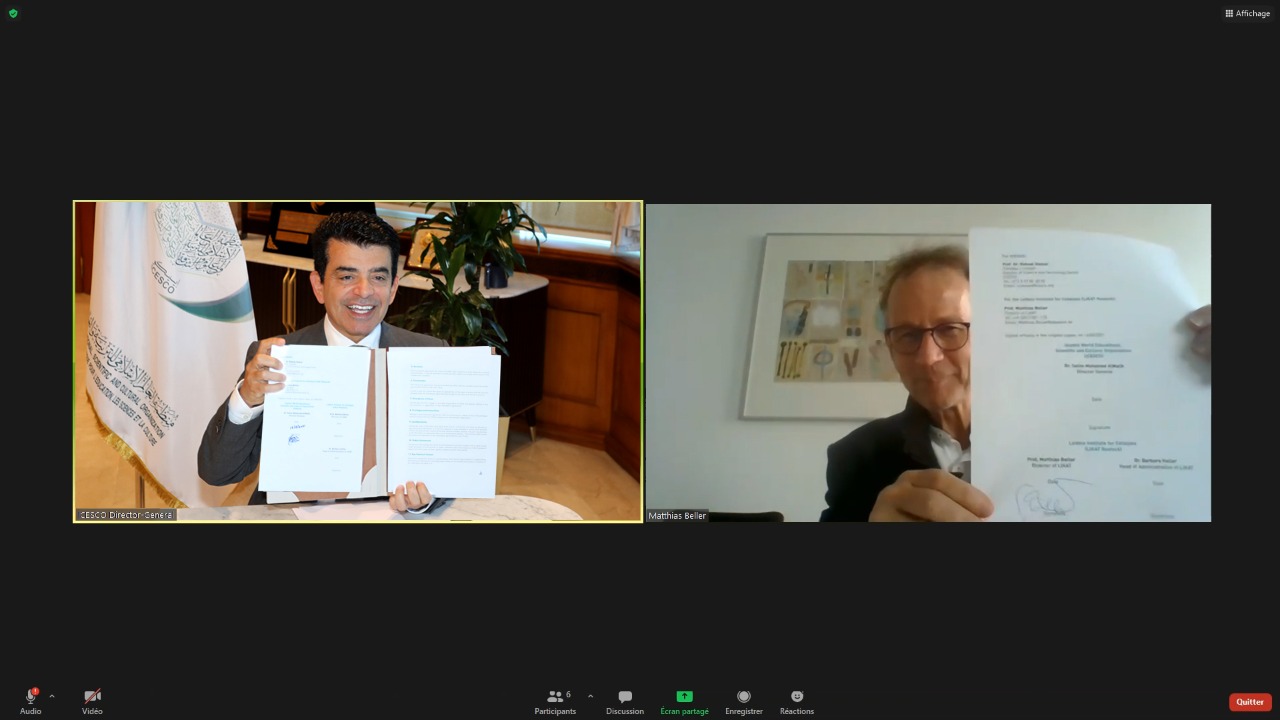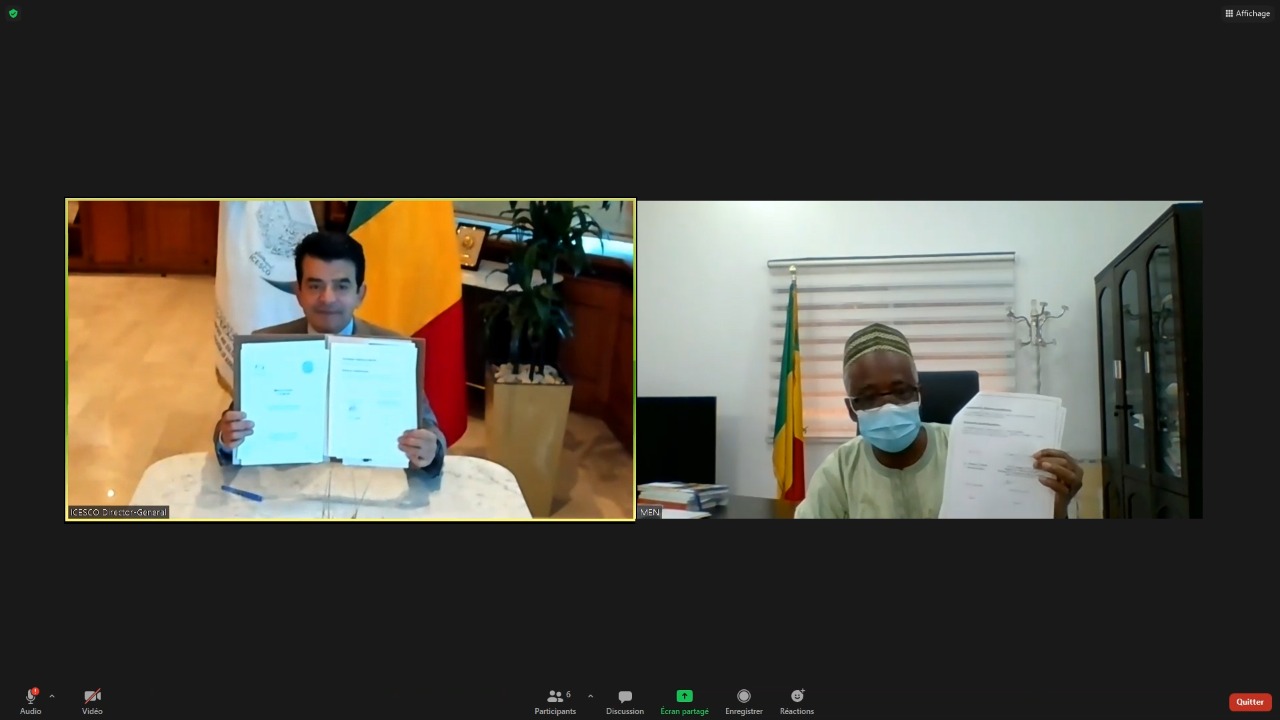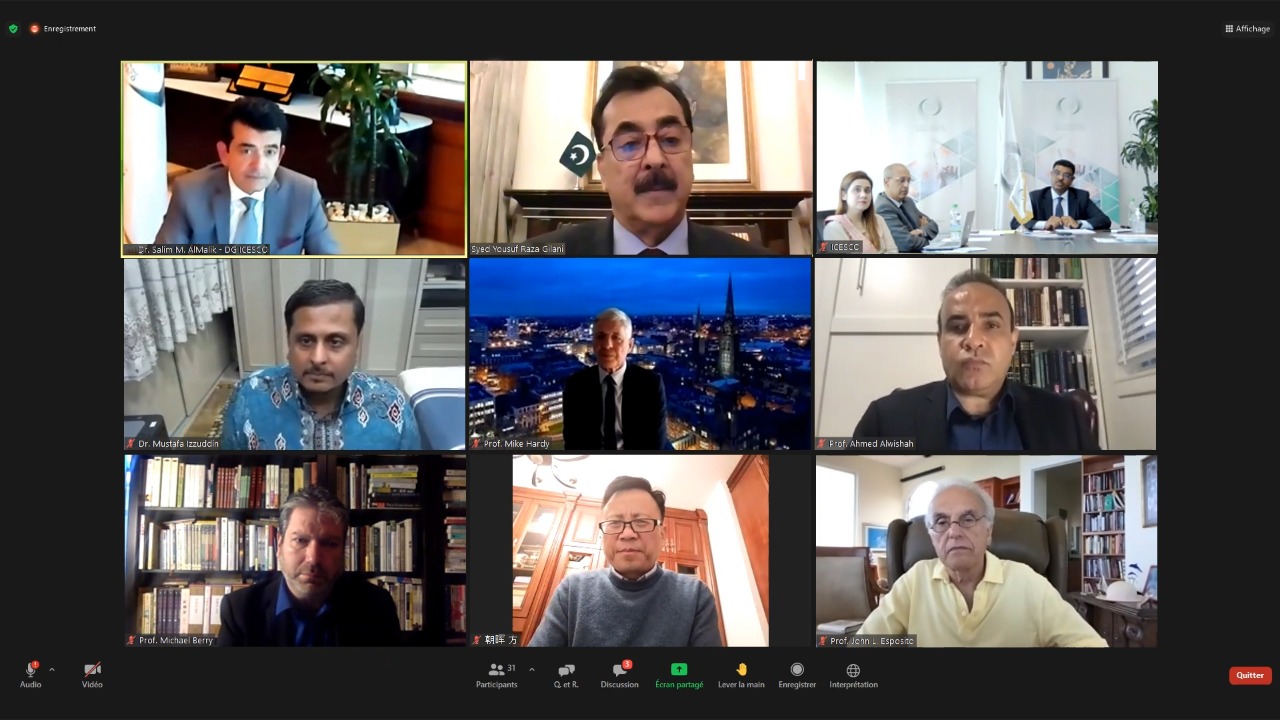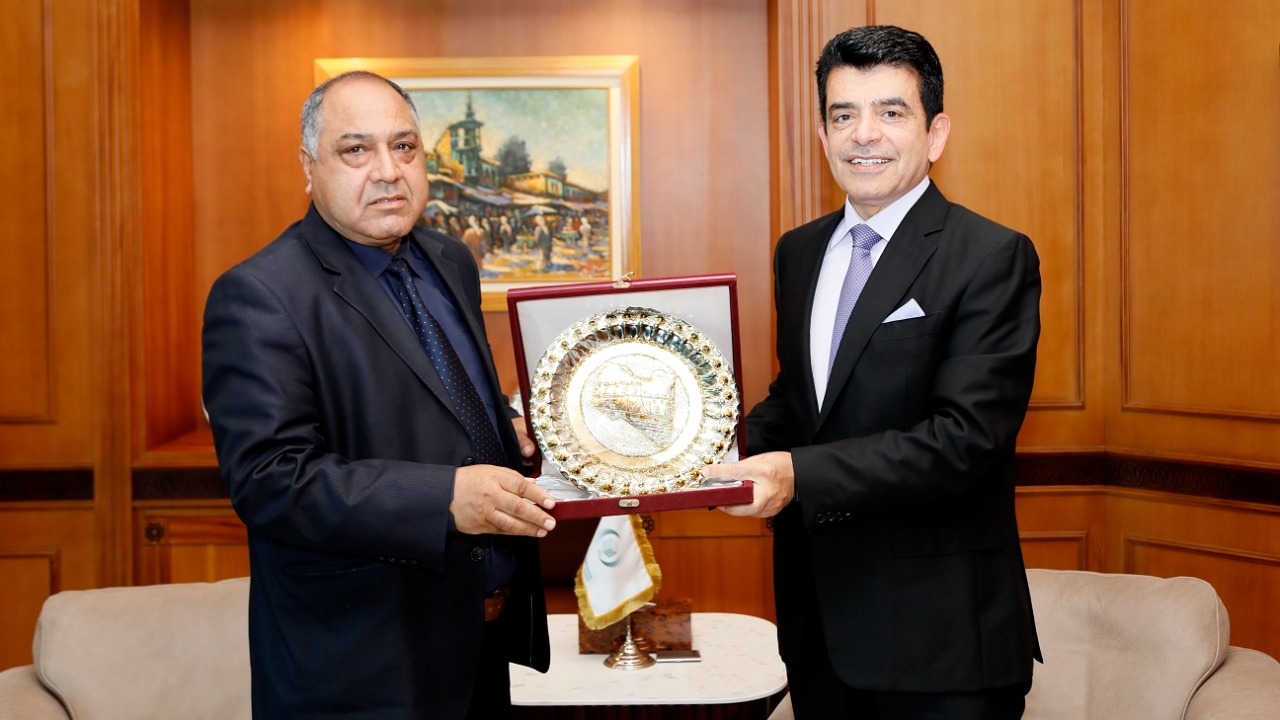The Islamic World Educational, Scientific
and Cultural Organization (ICESCO) signed a cooperation agreement with the Moroccan
Ministry of National Education, Vocational Training, Higher Education and
Scientific Research (the Higher Education and Scientific Research Sector), and
the National Center for Scientific and Technical Research (CNRST) in Rabat. The
agreement concerns the Award of the “Best Scientific Research on Combating
Violence against Women,” which includes five categories, to be granted to the
best scientific research works aimed at producing new knowledge or solutions for
this phenomenon.
The agreement was signed yesterday, April
26, 2021, at the headquarters of the Higher Education and Scientific Research
Sector, in Rabat, in the presence of Dr. Saaid Amzazi, Minister of National
Education, Vocational Training, Higher Education and Scientific Research,
Chairman of the Moroccan National Committee for Education, Science and Culture;
Dr. Salim M. AlMalik, ICESCO Director-General (DG); Dr. Driss Ouaouicha, Minister
Delegate to the Minister of National Education; and Dr. Jamila EL Alami, Director of CNRST.
In his address at the signing ceremony, Dr.
Amzazi stressed that the Award represents a celebration of scientific research
in general and scientific research on arts and social sciences in particular.
“The Award is part of the Kingdom of
Morocco’s initiative to combat violence against women, launched on 08 March
2020, under the supervision of Her Royal Highness Princess Lalla Meryem. This
initiative reflects the great partnership between the Ministry and ICESCO, and
the Organization’s proclamation of 2021 as the Year for Women” Dr. Amzazi
underscored.
On his part, Dr. Ouaouicha highlighted the
spread of violence against women in our societies, particularly during the lockdown
period. “Such situation stresses the importance of this Award which is likely
to contribute to combating this phenomenon and finding scientific solutions to
it,” he added.
In his address, Dr. AlMalik indicated that
the teachings of Islam call for honoring women and combating violence against
them, noting that ICESCO is making every effort to grant women their rights.
“ICESCO’s proclamation of 2021 as the year of women, under the high patronage
of His Majesty King Mohammed VI, is part of these efforts,” he highlighted.
Dr. AlMalik also stated that “this
partnership will herald other partnership agreements with universities and
research institutions and encourage the establishment of several ICESCO academic
chairs. This Award will be the start of similar prizes in other countries of
the Islamic World.”
On her part, Dr. Jamila EL Alami said that this Award is the first
of its kind at the national level while highlighting its salient stages
starting from nominations until the announcement of winners. The participants
also took part in the 2021 award ceremony.
According to the agreement, the winners
will receive the Award on the 8th of March of every year,
corresponding to the celebration of International Women’s Day. The nominated
scientific research works should be:
- Book published in the past five years;
- Thesis published in the past five years;
- Chapter from a book published in the past
five years;
- Article published in a scientific journal in
the past five years;
- Scientific paper submitted to a scientific event
in the past two years.
The scientific research works can be
written in Arabic, French, or English. The prize money of the Award is as
follows:
- The best book: 30,000 MAD;
- The best thesis: 25,000 MAD;
- The best chapter:15,000 MAD;
- The best scientific article: 15,000 MAD;
- The best scientific contribution: 10,000
MAD.
Based on the recommendations of experts,
the Award can be granted to more than one winner in each category.



